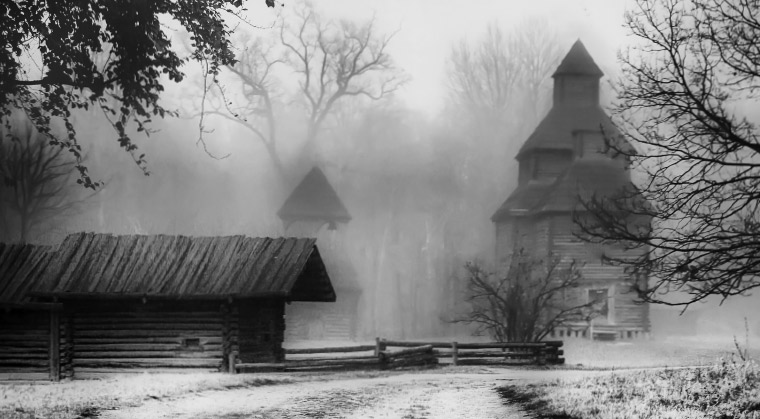Soldier of Fortune

At first she heard a faint rumbling in the distance, but soon the thunderous pounding of hooves meant there was no room for error.

“They won’t come.”
“They will come, and we need to be prepared.”
“They won’t come, and stop being so pessimistic and filling our hearts with fear and dread.”
This was the refrain, the steady argument that took place nonstop for an entire year, in the home of a Jewish family in the small Russian village of Zemtov. During that time, the Russian Czar had added a further stricture to the Cantonist Decree, which meant that Jewish children, some as young as eight years old, were taken from their homes and inducted in training camps that would prepare them at age 18 for the notorious 25-year-long service in the Russian army. In addition, the Russian monarchy decreed that the firstborn son of every family must be drafted into the Czar’s army as well. This edict, of course, not only threatened Jewish youths with physical ruination, but with spiritual destruction. Government authorities refused to accept monetary payments in place of the bodies of young Jewish men, and as a result, every family began devising their own strategies to save their oldest sons from the dreaded fate.
The officials in St. Petersburg knew well that the Jews wouldn’t give up their firstborn sons, that they would never willingly surrender them to the army for years of service, that they would fight to the finish. As a result, the draft board opened an exclusive division for the forced induction of Jewish youths. A special battalion, more like a posse, made their way from town to town, hunting down Jewish firstborns of draft age. They would appear suddenly, surrounding a Jewish home to prevent anyone from entering or leaving. If a family resisted the soldiers’ demands, the consequences could be devastating. The young men would be hauled off to an unknown fate — some returning years later after having been virtually transformed into gentiles. There were a few who remained strong enough and tenacious enough to cling to Yiddishkeit; and then there were those who never returned, whose ultimate fates were never revealed.
In the village of Zemtov lived a single Jewish family with two sons: Yankel, the firstborn son, and his brother, Elimelech, who was two years younger. Their parents — honest, upright, hardworking Jews — made an honorable living in the village, although they did consider leaving from time to time for the spiritual welfare of their children. But when the decree of military conscription for every firstborn son spread through the country, they were grateful that they’d never left their sleepy village. Why would the draft brigade bother coming to Zemtov? The village wasn’t even on the map and had no official government registry.
Still, when Yankel turned 18, his mother became unnerved. What if the soldiers discovered their village after all and came to abduct her precious son? While the boy’s father negated her fears, her inner voice told her that Yankel was in danger.
And one afternoon, they were there. At first she heard a faint rumbling in the distance, but soon the thunderous pounding of hooves meant there was no room for error.
“Yankel, they’re coming!” his mother shouted through the window. Yankel looked up from his garden work, and there, in the distance, was a fast-approaching troop of soldiers. How had they known about Zemtov, and who had revealed to them that there was a Jewish family there?
Speculation would have to be for another time. The soldiers stormed the house, their heavy boots crushing the newly-grown radishes and carrots as they stomped through the garden. Bursting through the door, they demanded that the parents surrender their eldest son, Yaakov.
“Yaakov is not here,” his mother said with as much confidence as she could muster under the circumstances. “He disappeared long ago. If you find him, please ask him to come back and take leave of us before he joins the Czar’s army.”
“We did not come all the way here in order to be mocked!” thundered the commander of the group. “Go get Yaakov and bring him to us now! You look like intelligent people, and you must surely understand that it is not advisable to defy the law or its armed representatives.”
Indeed, they understood. Their eyes and ears told them just how inadvisable it would be; the soldiers were brutal and intimidating. But Yankel had truly vanished, and they had had no time to prepare for his escape or to discuss where he would go. They really didn’t know where he was.
The commander ordered his men to begin a thorough search. They spent hours ransacking the house and yard, moving closets and destroying every possible hiding place. They plunged their swords into piles of vegetables and repeatedly threatened the family members. When the commander was finally convinced that the family didn’t know where Yankel was hiding, he conferred with his men, his gaze racing back and forth in every direction, finally falling on Yankel’s younger brother, Elimelech. “Shackle him!” he ordered.
Two soldiers, eager to take a prisoner, leapt on Elimelech, chaining his hands and feet in a flash and announcing that he would be forced to take the place of his missing brother.
The pleas and heartrending cries of Elimelech’s parents fell on deaf ears. The boy was cast into a large wagon, where several other captured young men were already sitting. After a long journey, he found himself in a huge military base.
For the first year, he suffered both physically and spiritually. His body was tormented by the grueling training exercises and the backbreaking labor, while his soul suffered from the constant battle he waged against his superiors to avoid desecrating the Shabbos or defiling his body with forbidden foods. Elimelech fought with all his might to remain Jewish. He knew about the Cantonist boys, who were taken from their families as young as age eight, in order to prepare them for their 25-year conscription at age 18. He was fortunate that, unlike them, he still remembered how to be a Jew, and wouldn’t allow himself to give in.
Eventually, Elimelech got used to army life and figured out how to remain a good Jew even under the near-impossible conditions. One thing nagged at him though, and gave him no peace: It was an overarching resentment toward his brother, Yankel, who had run away and had left him as easy prey for the Russian army’s headhunters. “My brother knew that I was next in line after him,” Elimelech would tell himself. “When he ran away that day, he essentially left me to take his place. How could he do that to me?”
Although Elimelech managed to avoid treif foods and kept Shabbos as best he could, he became consumed by rage toward his brother — fantasizing about the day they would again meet, and how he would exact punishment for Yankel’s despicable deed.
About a year into Elimelech’s forced conscription, an exciting piece of news spread through the camp: The commander had graciously agreed to allow many of the soldiers to take a two-week furlough, on condition that they would guarantee their return after the two weeks were up. (That meant threatening their family with severe repercussions if they didn’t show up after the leave time.)
Elimelech began his journey home on foot, preferring to save the small amount of money he had for later, when his strength would give out and he would need to pay for transportation. From time to time, he stopped for a meal in a Jewish-owned inn, where he was generally greeted with warmth and appreciation by his coreligionists. Every Jew was aware of the tribulations endured by a Jewish soldier in the Czar’s army, and everyone understood the sacrifice that it took in order for a soldier even to maintain his humanity, let alone his Yiddishkeit. For Elimelech, there was another issue: revenge.
One afternoon, Elimelech found himself at the entrance to a small town. Looking up, he saw that the sun was already in the west and would soon be setting; he couldn’t continue traveling after dark, so he walked along the main road, scanning each doorway for a mezuzah. Finally, he knocked on a door and was greeted by an elderly Jew who invited Elimelech into his home and offered him food, drink, and a comfortable bed where he could rest.
Elimelech fell asleep, with thoughts of vengeance still dancing in his mind, the refrain playing over and over again: that Yankel had saved himself from a den of lions by casting his brother into the den in his place.
The following morning, Elimelech’s gracious host bade him a warm farewell, sharing an exciting piece of information. “Right now,” he said, “they’re davening Shacharis in the town’s shul, and after Shacharis, we will be celebrating my grandson’s bris. There is a distinguished guest here who will serve as sandek.” Elimelech was excited to hear that the sandek was none other than the famed Rav Mordechai, the Maggid of Chernobyl.
In the shul, the men crowded around the chair where the Maggid sat with his tallis covering his face. Various kibbudim were announced, and the infant was brought into the room and placed on the tzaddik’s lap. Suddenly, the Maggid lifted his tallis and began scanning the crowd around him, as if he was looking for someone. His gaze suddenly landed on Elimelech, and the young man felt himself being scrutinized intently. The Rebbe motioned for Elimelech to be summoned and to stand beside him, next to the kisei shel Eliyahu. Then he gestured for the bris to begin.
The surprised soldier stood next to the Rebbe, looking back and forth between the tallis that covered the tzaddik and the infant who lay in his lap. Suddenly, Elimelech lost his balance and fell backward, caught just in time by others standing behind him as he fell. They looked at the stranger and saw that his face had become deathly pale — he had fainted.
The Jewish soldier was placed on a long bench, and the men rubbed some whiskey on his forehead and splashed water on his face. Elimelech awoke and approached the Maggid, who directed a meaningful smile toward him. The Rebbe, it seemed, knew exactly what happened.
“What was that all about?” the other guests asked.
“Didn’t you see it!?” Elimelech exclaimed.
When it became clear that the young man himself was the only one who had witnessed the apparition that had shocked him, he exclaimed that he had seen the infant dressed in an immaculate, meticulously ironed uniform of the Russian army, tailored as an exact fit for his tiny body.
“I realized,” he explained, “that I was seeing an apparition from a different world. Just a moment earlier, I had seen the baby wearing the usual festive white garment. Clearly, the Rebbe called me over so that I could see this otherworldly vision.”
Once the bris concluded, the guests began filing past the Rebbe to receive his brachah. When Elimelech’s turn came, the Rebbe whispered to him, “Did you see? This baby is going to be a soldier in the Czar’s army when he comes of age. It has been decreed upon him from Heaven, and there is no way that he can avoid it. Many things that are destined to happen to a Jewish person can be seen upon him at his bris milah. Of course, not everyone can see it; only a person with the right kind of vision is able to perceive these things.
“Elimelech, it was decreed upon you from Heaven that you would be inducted into the army. It was not decreed upon your brother. Therefore, you have no reason to be angry at him or to desire vengeance. He did not cause this to happen — it was Divine Providence that engineered this fate for you, which was ordained by the Master of the Universe specifically for you, for every Jew has his own individual mission and tikkunim to perform in this world.
“However,” the holy Maggid added, “although the decree of conscription on this child is inescapable, as you can see from the fact that this baby appears today in the uniform of a soldier, the way he will handle it is a matter of his own choice. Whether he will take steps to lighten the decree, whether he will remain devoted to Hashem, and whether he will withstand the difficult challenges that he will face — all of that is entirely up to him.”
(Originally featured in Mishpacha, Issue 732)
Oops! We could not locate your form.













